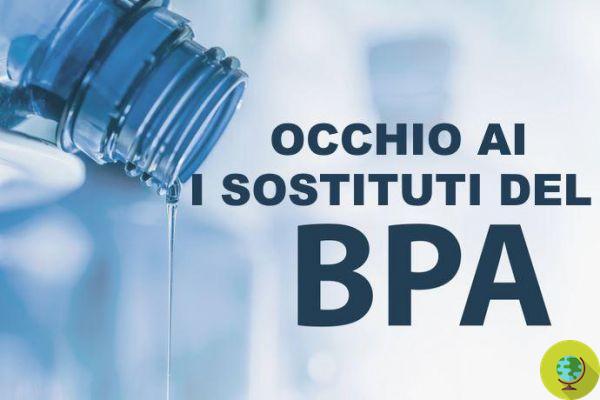
Bisphenol A, now known enemy. What if it's not the only material that's bad for your health? What if BPA-FREE plastic was also harmful? Bisphenol A-based plastic has harmful effects now established by numerous scientific studies but new research has focused on alternatives to this material, confirming that even BPA-free plastics can be dangerous and even damage reproductive cells
Don't store avocado like this: it's dangerous
Bisphenol A, now known enemy. What if it's not the only material that's bad for your health? What if BPA-FREE plastic was also harmful?
Bisphenol A-based plastics have harmful effects now established by numerous scientific studies but new research has focused on alternatives to this material, confirming that even BPA-free plastics can be dangerous and even damage reproductive cells.
We have long wondered if BPA-free plastics are really safe. Food companies and those that produce food containers in recent years have tried to find alternative materials to those based on BPA. Many are used, but the new research, conducted by scientists at the University of California at San Francisco, focused on BPS, bisfeonol S, and other chemical compounds including BPF, BPAF and diphenyl sulfone.
Based on their findings, the researchers found that some of these substitutes can cause the same effects as BPA, and particularly in both female and male reproductive cells.
Exposure to BPS, for example, will affect future generations. Researchers have shown that even if it were possible to completely eliminate bisphenol contaminants, the effects would continue to persist for about three generations, especially in males causing chromosomal abnormalities.
Not just bisphenols
According to Patricia A. Hunt, one of the study's authors, more investigations will be needed to determine whether some replacement bisphenols might be safer than others, as there are dozens of them in use. She also suspects that other widely used chemicals interfere not only with the endocrine system (parabens, phthalates and flame retardants) but may have adverse effects on fertility.
"The ability to rapidly improve the properties of a chemical has enormous potential for the treatment of cancer, the improvement of medical and structural materials and the control of dangerous infectious agents," write researchers. "It is important to point out that this technology has paved the way for 'green chemistry'."
Unfortunately, the regulatory agencies charged with assessing chemical safety still fail to keep pace with the introduction of new chemicals, as the bisphenol substitutes demonstrate.
Hunt's advice to consumers on BPA-free o no, is to avoid plastic products that show physical signs of damage or aging, which cannot be considered safe.
Although the study was carried out on mice, the fears related to exposure to MPA-free substances are concrete and the effects of the substitutes are finally being investigated.
The study was published in Current Biology.
READ also:
- Bisphenol S: is the bisphenol A substitute equally harmful?
- BPA: 10 Ways To Lower Your Whole Family's Exposure To Bisphenol A.
Francesca Mancuso


























